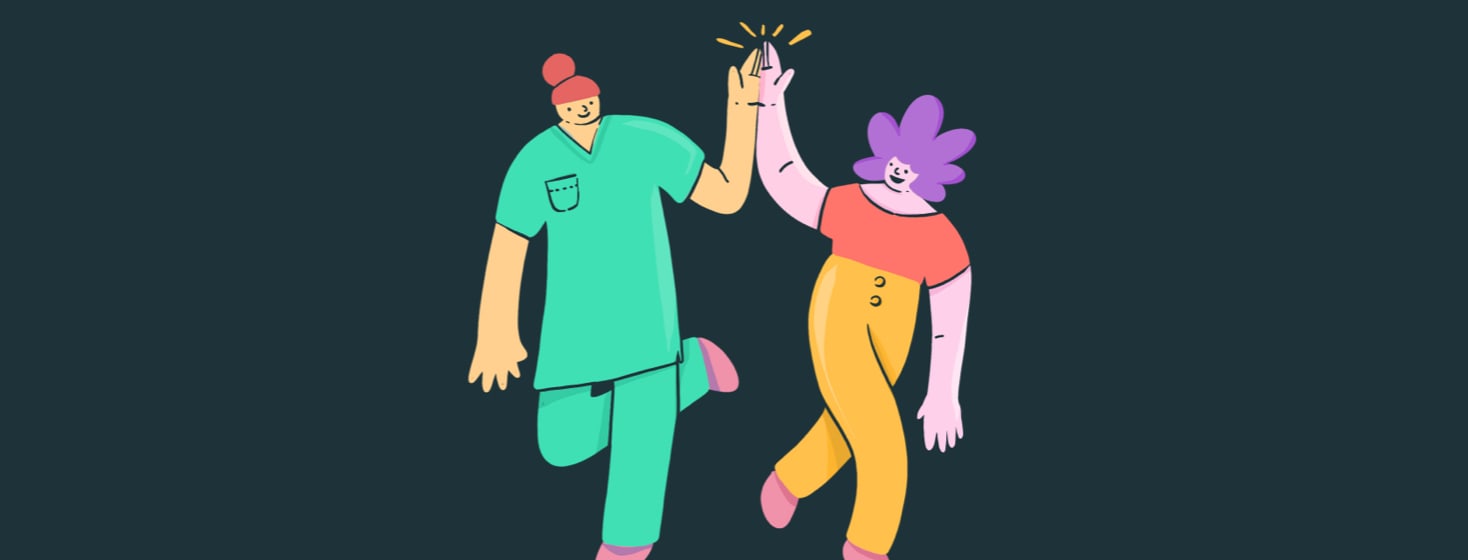How Persistence and Medical Partnership Impact Diagnosis
I am a complicated rare disease patient. Not only do I have two rare diseases, but I am also potentially developing a third. Whenever I have a new medical condition, it never fails to take several months to diagnose.
Sometimes, it gets to the point where I will second guess myself, even medically gaslight myself. But even in these moments of self-doubt, the one thing I do not allow myself to do is give up on getting answers about unexplained, recurring new symptoms.
The drive to find answers
his is partly due to my stubbornness and control issues leading me to believe that everything has been tried, everything has been explored. It also stems from my disbelief that there isn't something that can at least make my new symptoms manageable, even if they are not curable.
And in case you're wondering, this all stems from my own Medical Post-Traumatic Stress Disorder. I am unable to accept a new state of life until I have been able to try everything possible to diagnose and manage symptoms. Once I feel comfortable that everything has been explored, I can begin adjusting to a new condition.
Finding the right medical partners
Fortunately, this tenacity has thus far allowed me to obtain a diagnosis and treatment plan to manage the identified condition. However, this wouldn't be the case without the essential partnership with medical providers who are also unwilling to give up on me if I am unwilling to give up on myself.
I've been extremely blessed to find medical providers who have been easygoing and not bothered by my intense research on my medical conditions and symptoms, possible tests to be completed, and treatments to be tried.
This or That
I think of my doctors as partners in managing my rare disease
Overcoming insecurity through preparation
I honestly viewed my providers being so easygoing as them just "tolerating" me and my anxiety, and that doing so simply saves them headaches. I fully acknowledge that my young appearance and childlike voice create a provider's bias to my advantage.
Due to my belief about my providers, I tend to be particularly prepared with research articles when asking questions and requesting various approaches to try. I am also quick to verbally express my gratitude to my providers, especially when I feel that my provider is going above and beyond for me.
The power of validation
Over the last year, I heard from two of my providers about their view of patients, specifically about myself. After experiencing unexplained, chronically debilitating pain for over half a year, the last specialty to consult was neurology. I truly felt like this neurologist was my last hope for answers. This provider was confused about why I didn't think he would believe me about my symptoms and told me, "I always believe my patients."
The amount of relief that rushed over me was immense. This year, after finally obtaining a diagnosis and effective treatment for my chronic vomiting, I told my GI specialist, "Thank you for not giving up on me," and in return, he expressed his gratitude for my research, persistence, suggestions, and questions as it helps him be a better doctor. Hearing a provider acknowledge this was an incredible feeling!
Appreciating the physician's perspective
These two exchanges provided me with a completely new appreciation for my providers. They helped me let go of some of those burdensome feelings that I am "too much" as a patient – a complicated rare disease patient, no less.
Perhaps my other providers feel the same as these two but just haven't expressed it. It is another glaring reminder about the importance of medical partnership with our providers and that it is a two-way street.
Our providers need us to be comfortable asking questions, pushing for answers, and advocating for ourselves. And we need our providers to listen to us and take us seriously.
Advocacy works both ways
Self-advocacy skills are most important at times when a provider doesn't take us seriously. I share some of my best advocacy tips in another article. These advocacy skills I've built, and my refusal to give up, have served me well thus far, regardless of how long it takes to find an answer and possible treatment plan.

Join the conversation